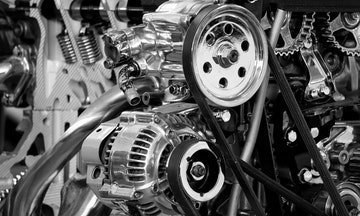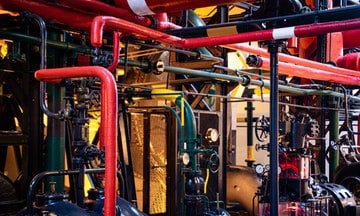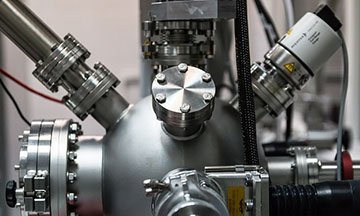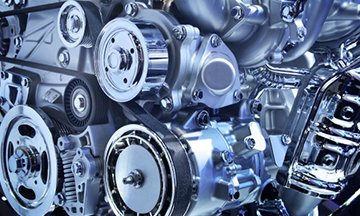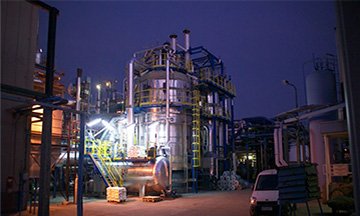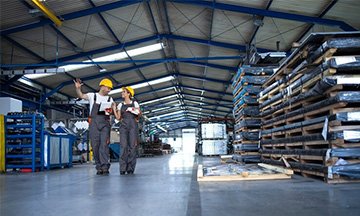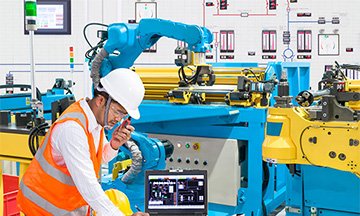Advanced Rotating Equipment Engineering Training Course
Course Overview
Rotating equipment is a term used to denote mechanical components using kinetic energy to move fluids and other process materials. Pumps, compressors, turbines, etc. are some examples of rotating equipment. What does ‘predictive maintenance’ refer to in this context? Predictive maintenance refers to checking of the condition and performance of an in-service machine to predict when maintenance would be required.
Effective predictive maintenance includes various parameters and types of inspection, such as vibrations, shocks, acoustic emissions, wear debris in oils, etc. Vibration analysis is used to detect anomalies in the normal vibrations expected out of machines to detect damage or probable future damage.
This Zoe training course will empower you with complete knowledge and detailed information about predictive maintenance, specifically vibration analysis, in rotating equipment. Through this course, you will gain the required experience and confidence to drive maintenance of rotating equipment in your organisation, thereby contributing to better machine life and reduced operational and maintenance costs. This, in turn,
will ensure better opportunities for you to grow and excel in your career.
Course Objectives
The primary objective of this Masterclass in Rotating Equipment Engineering training course is to empower professionals with—
- detailed knowledge and information about predictive maintenance, specifically vibration analysis, of rotating equipment
- the required experience and confidence to successfully drive maintenance initiatives for all rotating equipment in one’s organisation, thereby contributing to increased machine life and reduced maintenance costs
- the exposure and ability to accurately predict time and extent of maintenance through various methods, specifically vibration analysis
- knowledge of advanced concepts and techniques to conduct predictive maintenance, including those for vibration analysis
- adequate understanding and skill to interpret analyses results accurately to take appropriate next steps
- the confidence and knowledge to guide other professionals on performing predictive maintenance accurately
- the ability to prevent occupational hazards and through timely actions on the wear and tear of machines
- the knowledge and awareness to conduct all maintenance and inspection activities as per the timelines and methods specified by universally accepted guidelines
Training Methodology
Zoe Talent Solutions follows an unconventional and unique approach to training, ensuring that the training method is both theoretical and practical. Lectures are delivered by highly experienced professionals. Two-way participation is encouraged through role-plays, sample assignments, etc.
Trainees are also encouraged to share experiences and issues related to the topic with the rest of the audience, and these are discussed to relate theory to practical scenarios and challenges.
This unique and effective approach to training is adopted by Zoe Talent Solutions for all its training programs and is called the Do–Review–Learn–Apply Model.
Organisational Benefits
By professionals taking this Masterclass in Rotating Equipment Engineering course, their organisations will derive the following benefits:
- More accurate predictive maintenance for rotating equipment by trained and experienced professionals
- Greater machine life and reduced maintenance costs
- Higher quality product because of better machine maintenance
- Lesser downtimes and hence lesser risks and losses to business
- More regular inspections and audits for compliance with international standards
- Prevention of occupational hazards and challenges through accurate predictions and timely action
- Continuous training of employees on maintenance of equipment to prevent early wear and tear
- Organisational development because of reduced costs and better equipment
- Increased return on investment because of the higher efficiency of machines
- Greater safety to employees, thus promoting the organisation as an employer of choice
Personal Benefits
Professionals opting for this Masterclass in Rotating Equipment Engineering course will derive the following benefits:
- In-depth understanding and information about predictive maintenance of rotating equipment, specifically vibration analysis
- Increased knowledge of advanced concepts and techniques for predictive maintenance to ensure more accurate results and timely action
- Greater awareness and knowledge of acceptable standards of maintenance and operation, thereby ensuring that all activities and operations comply with these standards
- Better understanding and greater confidence to mentor other professionals on effective predictive maintenance of rotating equipment
- Greater ability and knowledge to contribute to reduced organisational costs through regular maintenance of equipment, thereby ensuring better quality at lower costs
- Increased experience and skill to ensure overall employee safety through early detection of possible challenges and timely action for these
- Enhanced skill set and capabilities to oversee all predictive maintenance activities for the organisation, specifically vibration analysis, by drawing relevant conclusions from available data
- Enhanced skill set and potential to assume higher roles and responsibilities related to predictive maintenance of equipment in any industry, thus increasing opportunities for growth and progression
Who Should Attend?
- Engineers and other team members working with rotating equipment in plants, who need to understand aspects of maintenance of equipment
- Managers and supervisors overseeing all operations at a plant involving the use of machines and rotating equipment
- Analysts and maintenance specialists responsible for conducting predictive analyses and scheduling maintenance activities
- Finance officers and accounts managers responsible for handling finances, including costs for maintenance of the equipment
- Top management of an organisation who need to understand the importance of predictive maintenance and invest focused attention towards this
- Compliance and quality managers responsible for ensuring adherence to required standards of quality and operation
- Any other professional interested in knowing more about predictive maintenance of rotating equipment
Course Outline
The Masterclass in Rotating Equipment Engineering course covers the following areas important to understand predictive maintenance, specifically vibration analysis, of rotating equipment:
Module 1 – Categories of Performance Indicators for Rotating Equipment
- Process
- Mechanical
- Electrical
- Control
Module 2 – Benefits of Predictive Maintenance
- Increased efficiency in lowering downtimes
- Mitigated risks by overall security
- Increased ROI in the short- and long-term
- Reduced labour costs
- Reduced equipment costs
- Reduced energy costs
- Reduced wear part inventories
- Greater safety
- Improved quality
Module 3 – Methods of Predictive Maintenance
- Infrared thermography
- Ultrasound analysis
- Motor-current signature analysis
- Oil analysis
- Partial discharge monitoring
- Vibration analysis
Module 4 – Tips for Appropriate Predictive Maintenance
- Put safety first
- Create a schedule and stick to it
- Do not wait for failure
- Share responsibilities
- Record everything
Module 5 – Hierarchy for Remote Monitoring and Data Analytics
- Field level
- Edge device
- Cloud
Module 6 – Aspects Impacted by Undetected Vibration
- Shaft misalignment and future behaviour of shafts
- Flatness and shape of shaft
- Rotor imbalance
- Fluid-induced instabilities
- Rubbing malfunctions between stationary and rotating parts
- Mechanical looseness
- Gear faults
- Foundation and other mechanical failure issue
Module 7 – Aspects Expressing Vibration Magnitudes
- Displacement
- Velocity
- Acceleration
Module 8 – Types of Imbalance Causing Vibrations
- Static or forced imbalance
- Couple imbalance
- Dynamic imbalance
Module 9 – Instruments Used for Vibration Measurement
- Transducers
- Accelerometers
- Velocity transducers
- Displacement transducers
- FFT analysers
- Line and protection systems
Module 10 – Some Types of Vibration Analyses
- Modal analysis
- Orbital analysis
- Torsional analysis
Module 11 – Faults Identified by Vibration Analysis
- Machine imbalance
- Machine misalignment
- Resonance
- Bent shafts
- Gear mesh disturbances
- Blade pass disturbances
- Vane pass disturbances
- Recirculation and cavitation
- Motor faults
- Bearing failures
- Mechanical looseness
- Critical machine speeds
Module 12 – Tips for Cleaning Rotating Equipment
- Cleaning is key
- Ensure proper alignment
- Listen for unusual sounds
- Feel for unusual vibrations
- Keep equipment lubricated
- Check all bolts
